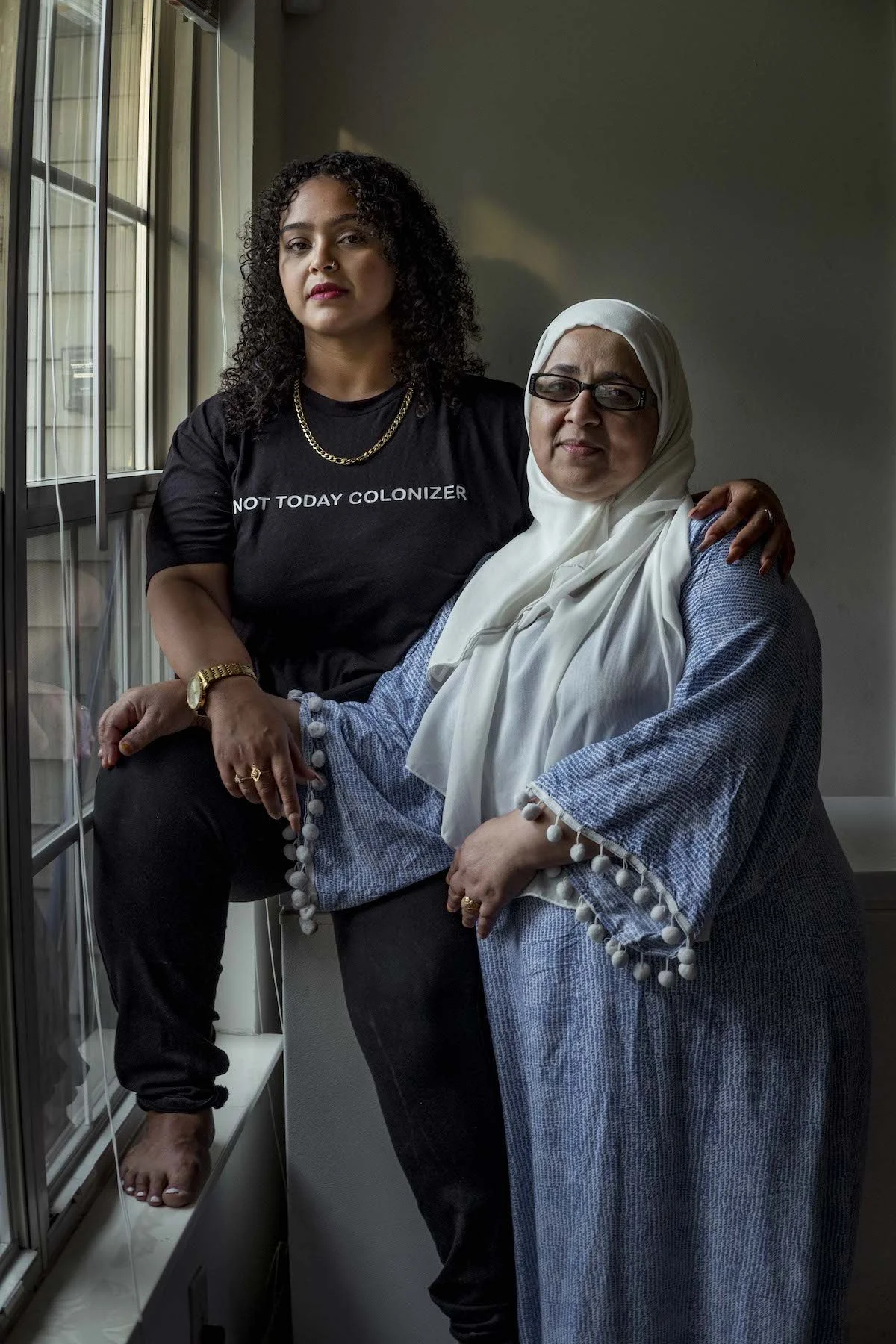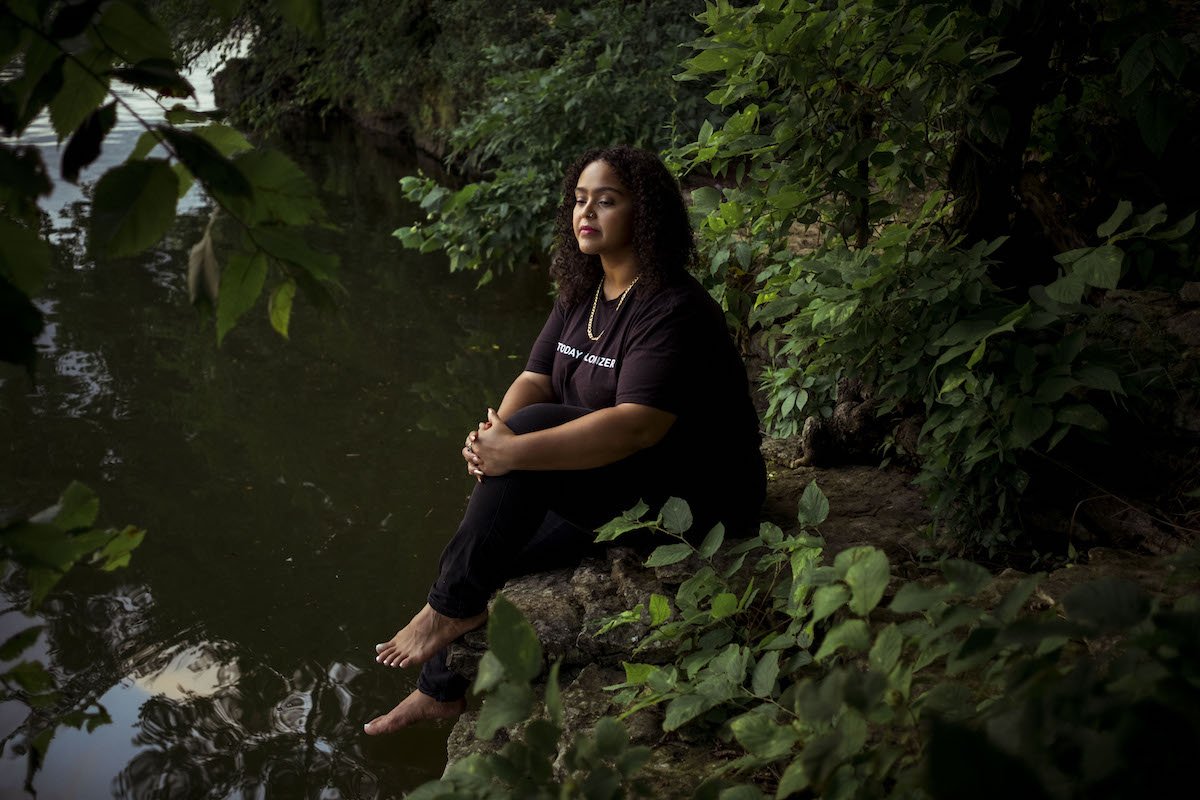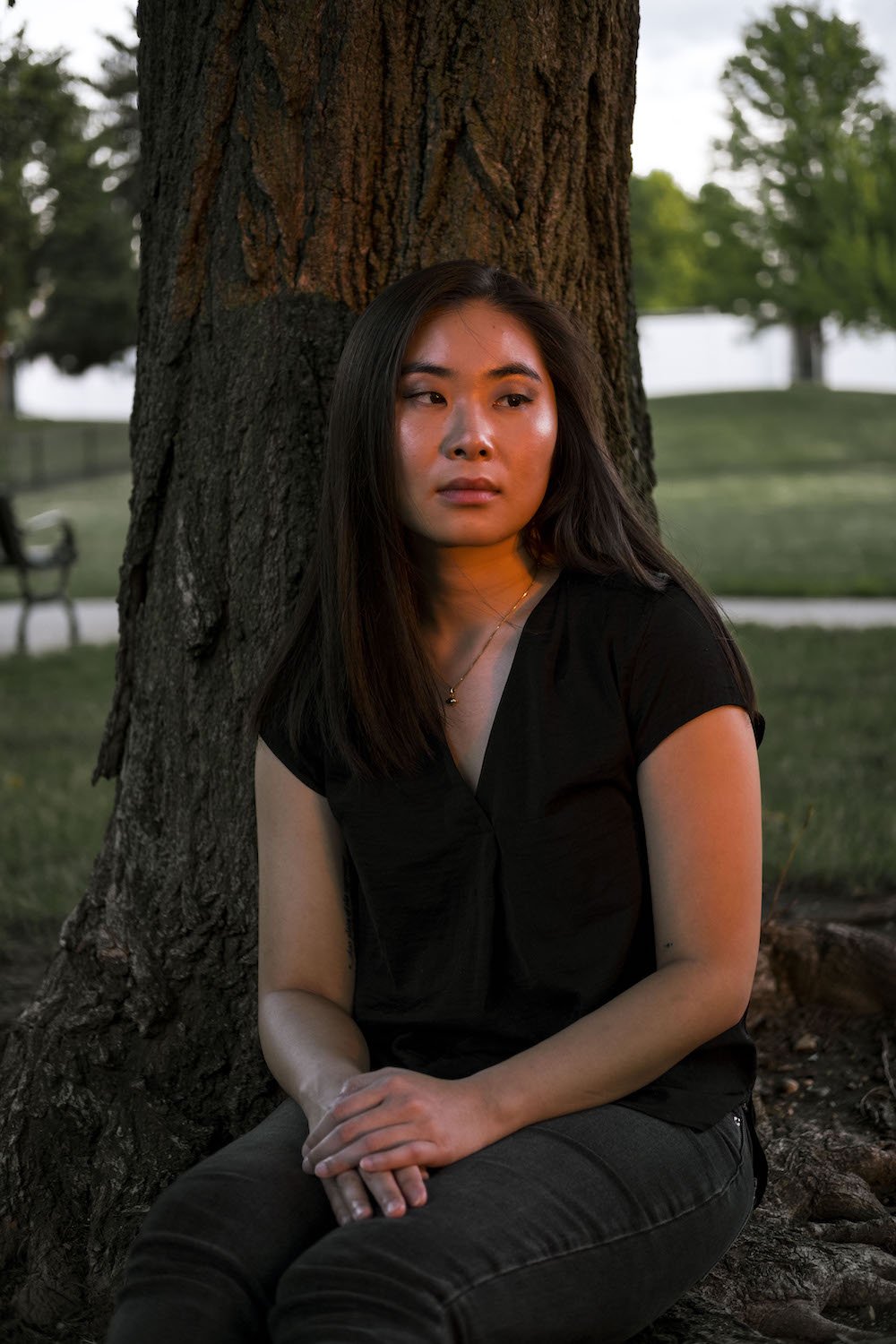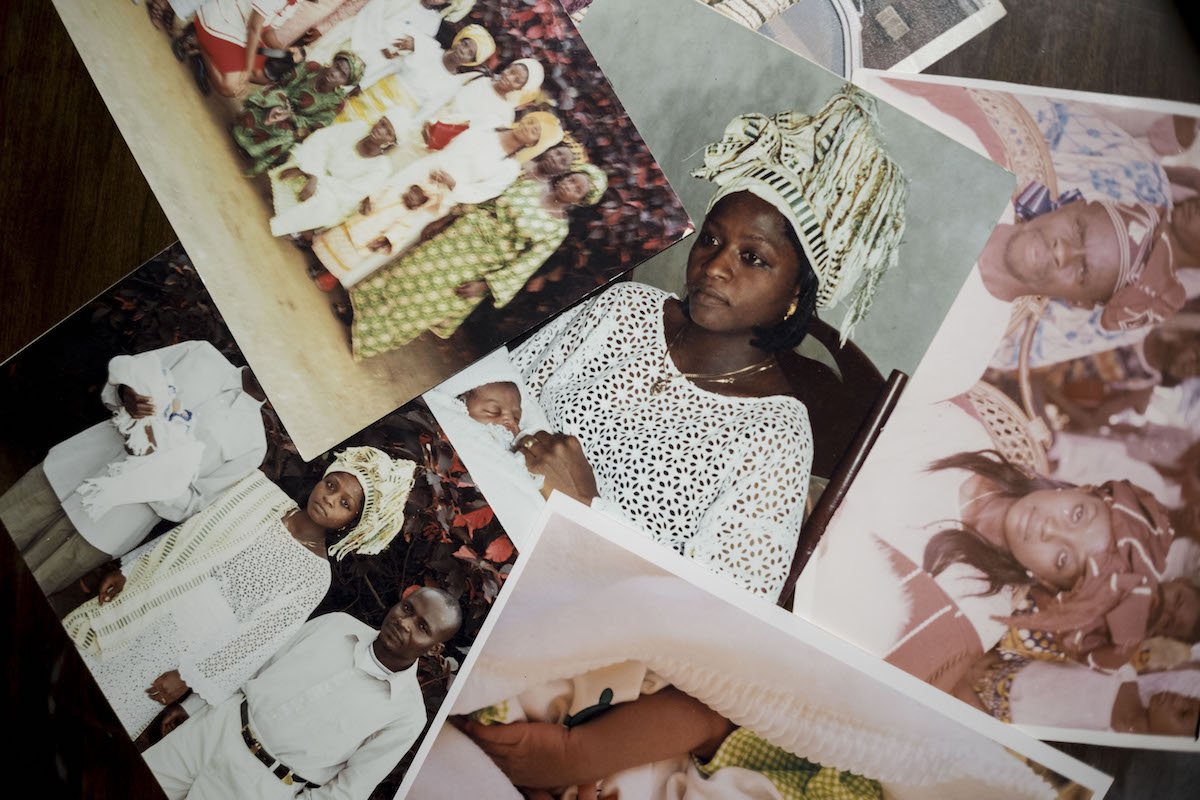OPAWL: Love Has No Borders
In the summer of 2021, I was commissioned by OPAWL, the Ohio Progressive Association for Women in Leadership, to photograph for a multimedia storytelling campaign Love Has No Borders to uplift Ohio & Midwestern immigration narratives. Many of the participants in the campaign were impacted negatively by the U.S. immigration system, especially during the years of the Trump administration. The goal for the campaign is to shift public support for comprehensive immigration reform that will reunite and keep families together.
Photo credit: Eli Hiller
Interviewer: Jessica Tjiu (OPAWL)
Writing and Editing: Reiya Bhat (OPAWL)
Alwiyah Shariff
Shariff is a community organizer based in Columbus. She shares her family’s story about the impact of being harassed by ICE agents and living apart from each other after her father’s self-deportation in 2019.
“ICE was engaged in a kind of mental warfare. If they couldn’t physically deport you, they were going to do whatever they could to make you want to leave. Two years ago, feeling frustrated and anxious about ICE’s tactics, my father made a difficult choice and self-deported to Canada. My uncle has also been in ICE detention for the past year, and he has not been allowed out on bail. He owned his own business, providing jobs in the community. I often wonder, what purpose does his detention serve?”




Eunice Uhm
Uhm is a postdoctoral fellow at KIA/Kalamazoo College specializing in modern and contemporary Asian and Asian diaspora art. She is also a recipient of the National Committee for the History of Art Travel Fellowship and the Diversity and Identity Studies Collective Grant at Ohio State University, where she recently defended her dissertation and received her PhD.
“I do want to say that when I think a lot of Americans when they think about struggles of immigration and just immigration, dehumanization of immigrants, I think it tends to be a spectacle. And it's certainly can be though babies in cages or families being separated, and it certainly is that I mean, it's true, but my family struggles are really at the intersection of class, race and immigration status, and it unfolded in a very mundane kind of quotidian ways.”




Hsa Win
Hsa Win is a Karen American who was born in Thailand. He currently lives in Northeastern Ohio and works to support the local AAPI community. In this piece, he shares the story of his family’s relocation from the refugee camp where he spent the first 11 years of his life to the United States, and the ongoing challenges of family separation due to annual limits in the American immigration system.
“My family is originally from Myanmar, but before I was born, my family was forced to relocate to a refugee camp in Thailand, due to conflict between Karen (my ethnic group) and Burmese soldiers. When my grandmother learned of how my mom, sister, and I were struggling, she talked to my mother about bringing us to the U.S. From making appointments, to waiting to receive documents, and completing in-person interviews, the whole process took two years. Even a decade after my family has settled in the U.S., immigration policies continue to affect my family’s ability to be together. When Trump drastically decreased the number of refugees who could enter the U.S. each year, my family was negatively impacted. My grandmother is still in Thailand and it is difficult to know when, or if, she will be able to come join us here. When we are together, we can take care of each other. When families are kept apart, these worries arise.”




Kanyinsola Oye
Oye shares how her father was able to sponsor her family to immigrate to the U.S. from Nigeria after years of long distance relationships, and how her uncle was deported when she was 15 years old.
“My only biological extended family in Ohio was my uncle. We are extremely close. I tie ‘struggle’ to him because I remember being as young as nine years old and constantly having to go to courtrooms and attend hearings for his green card and work eligibility. I realized even then that being a citizen was a big deal because there’s so much you can’t do [without citizenship]. I may not have understood everything that was happening, but we always came out of these hearings so sad and depressed. Lawyers kept collecting money, but nothing was changing in my uncle’s situation. We would keep hearing that his request was denied and that we’d have to come back for other hearings, in an endless cycle. My uncle was eventually deported after a long struggle. He can’t reenter the U.S. even now, and I think he’s just accepted he wasn’t supposed to be here. I feel like he struggled more here than he ever did in Nigeria. In Nigeria, you might not have money, but you have your family and community there.”




